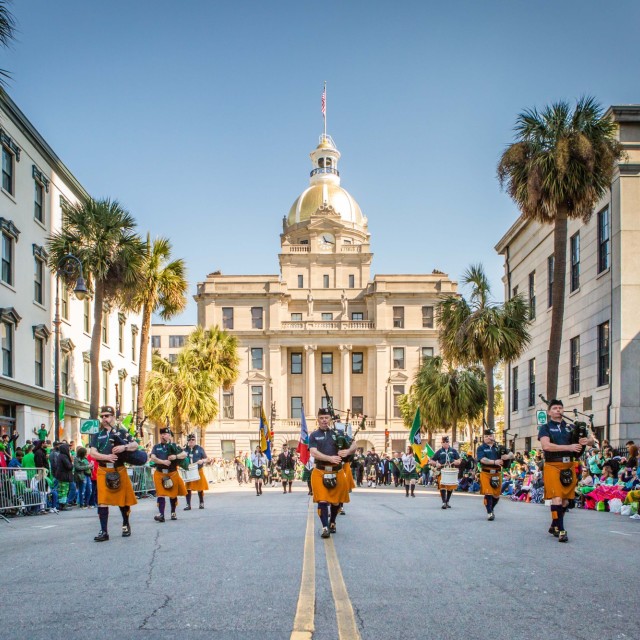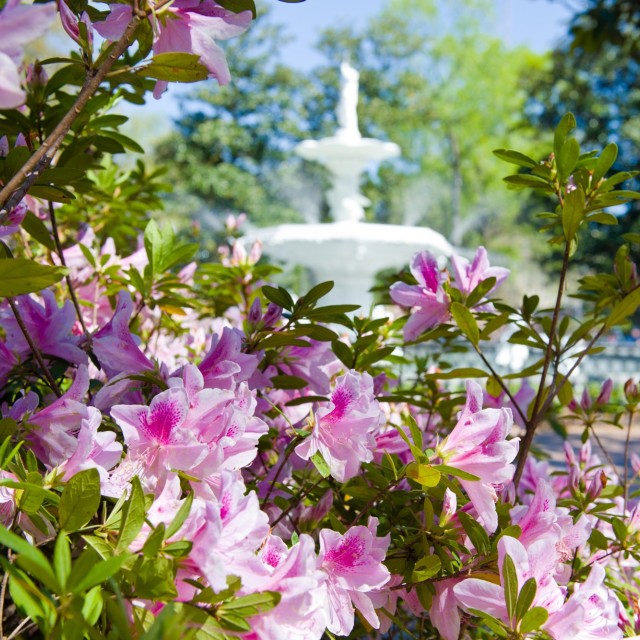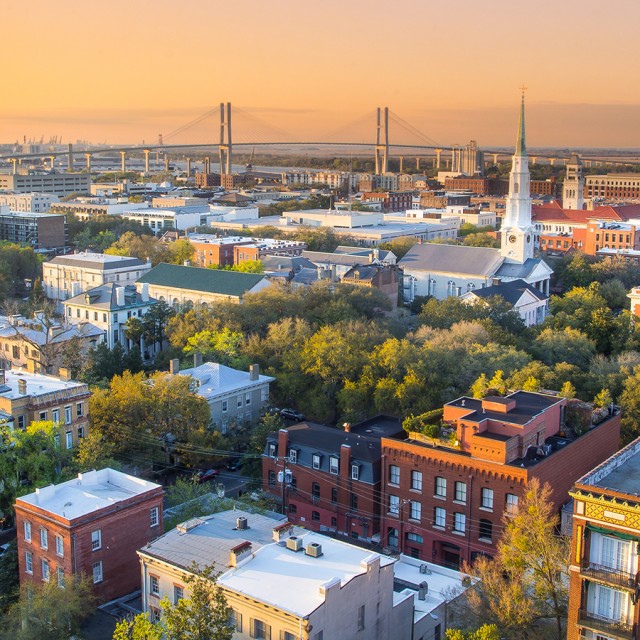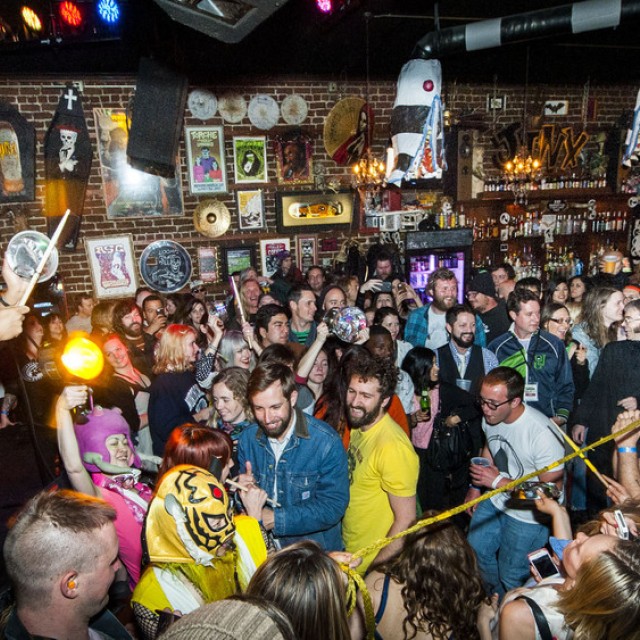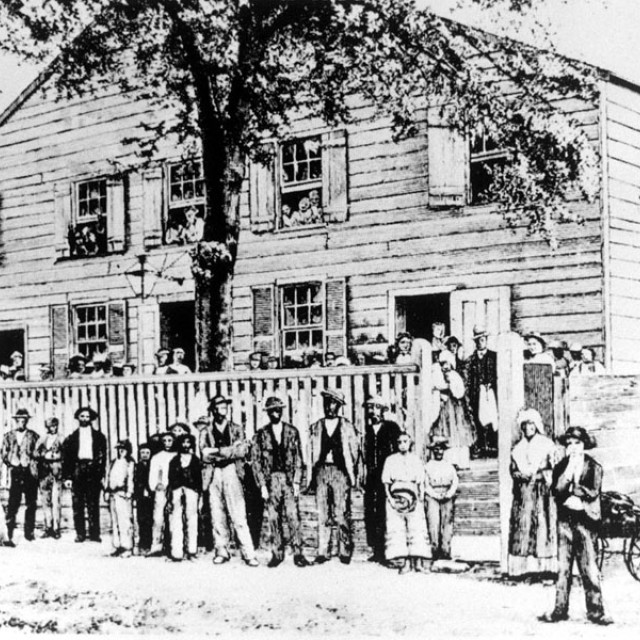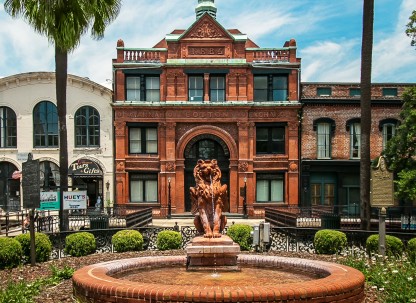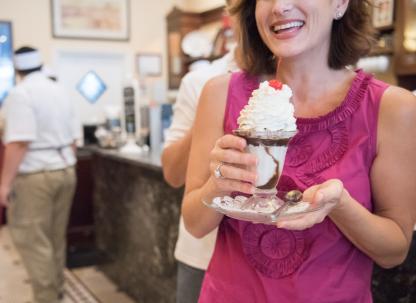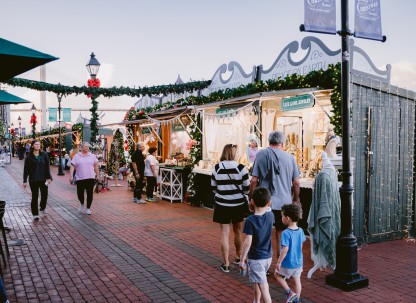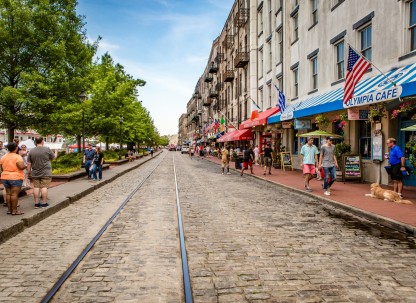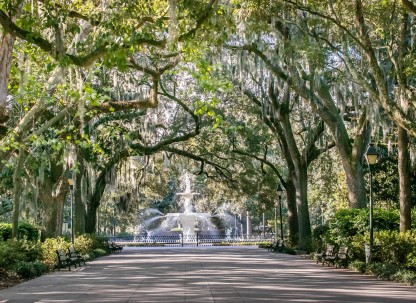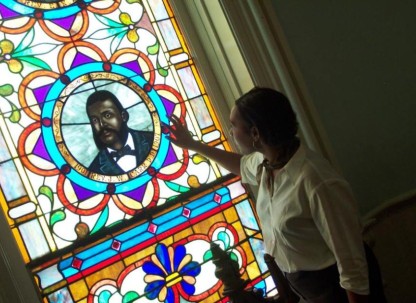This Savannah Congregation is Older Than the United States
By Summer Bozeman
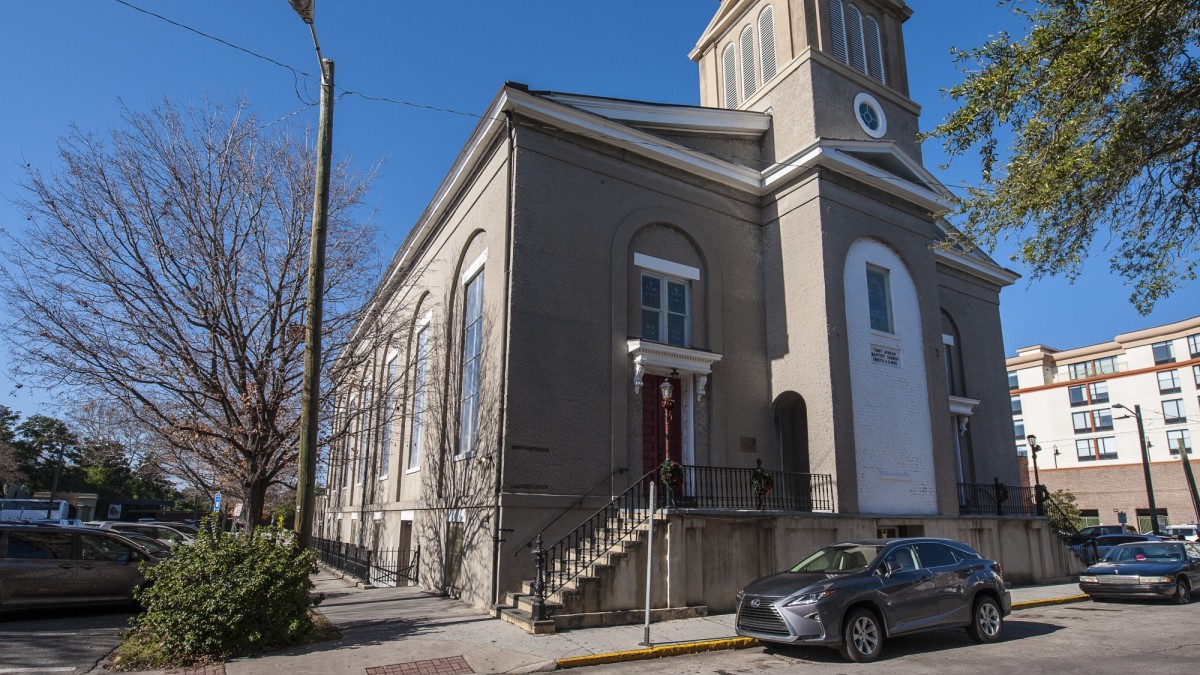
Savannah's First African Baptist Church is located on Franklin Square.
We all know the story of the American Revolution: star-spangled banners and midnight rides on horseback, tea in harbors, lanterns in windows and General Washington leading his troops across the Delaware. But by the time Lord Cornwallis surrendered to Washington at Yorktown in 1783 and The United States of America celebrated the end of its war for independence, this historically black congregation in Savannah was already ten years old.
When General James Oglethorpe first established Savannah and the colony of Georgia in 1733, he did not initially allow slavery in the colony, but by 1750 the practice had been legalized by the governing Trustees. When a slave named George Liele felt called upon by God to preach, he was supported by his owner, a Baptist deacon. Reverend Liele organized the congregation of Savannah’s First African Baptist Church in 1773 and it was constituted in 1777. Leile’s master had freed him before the start of the Revolution, but after his master’s death in 1782, he feared becoming re-enslaved and evacuated to Jamaica with the English Loyalists as the war began to come to a close.
One of Rev. Liele’s congregants, Andrew Bryan, continued his ministry to the congregation. Bryan and his wife Hannah had been baptized by Liele, but their faith had been encouraged by their master Jonathan Bryan, himself a devout Baptist who had once been arrested for evangelizing to slaves. With Jonathan Bryan’s support, Andrew built a small church for the congregation and preached the Lord’s word to hundreds of congregants, mostly black, but some white. Because of the fear of uprisings and defections to the British Caribbean, colonial and early American law forbade ministering to those enslaved and the church’s congregants suffered harassment, violence and jail.
In 1794, Bryan had raised enough money to build Georgia’s first black Baptist church and named it The Bryan Street African Baptist Church. By 1800, the congregation boasted more than 700 members. In 1832, the congregation pooled their $1,500 savings to purchase the lot at 23 Montgomery Street with a wooden frame church building on the site, where worship was held for 23 years before construction began on the First African Baptist Church building you can see today. The church’s mostly enslaved members worked on plantations surrounding the city by day and at night they were allowed to work on their church, completing the structure in 1859 under the direction of pastor William J. Campbell.
Promoted Content
First African Baptist Church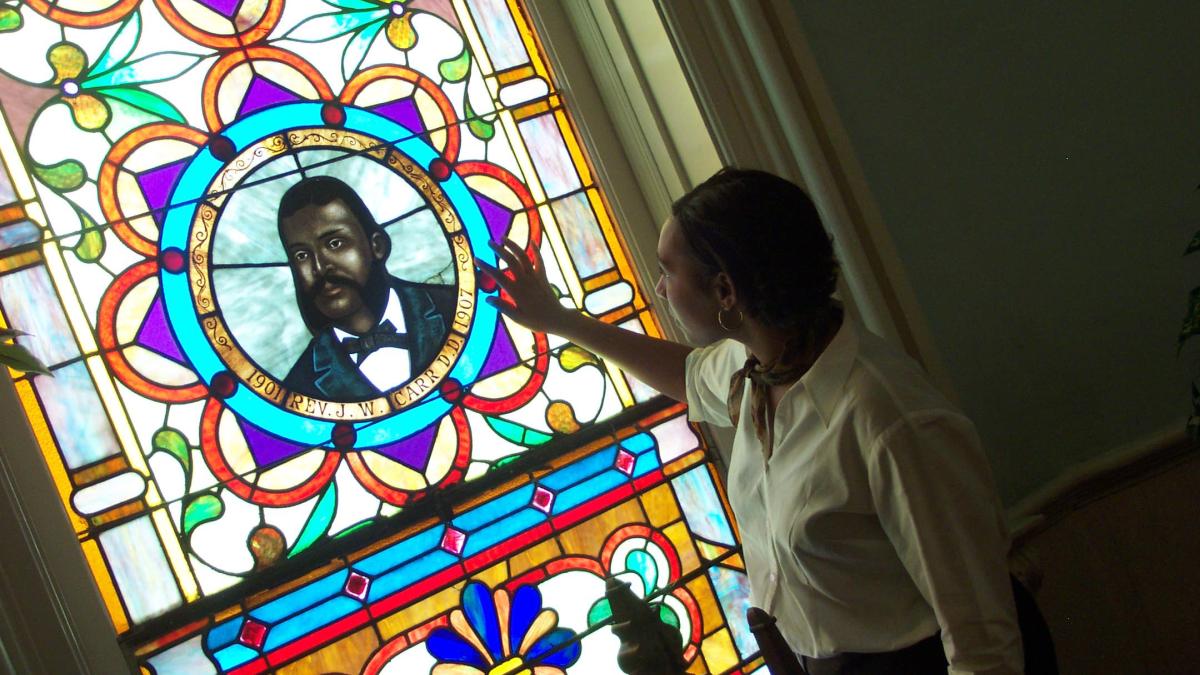
Inside the church are striking chandeliers and wall sconces, original to the building, and on the main floor of the chapel are beautiful solid oak pews installed in the early 1900s. The pews in the balcony were handmade by the slaves who built the church and down the sides of some of the pews is what might look like graffiti, but is actually a classical West African Arabic script, inscribed some time in the 19th century. Downstairs, outside of the church offices, pictograms can be found in the floor which resemble a diamond with a cross; this shape is an African prayer symbol known as a BaKongo Cosmogram, which represents birth, life, death and rebirth. And at the front of the church and on either side of the altar are beautiful stained glass impressions of the ministers who guided the church’s inception, including George Liele and Andrew Bryan.
The First African Baptist Church is today known as the “oldest continuous black church in North America.” It is a National Historic Landmark, and is listed on the National Register of Historic Places. Guided tours are available Tuesday through Saturday at 11 a.m., 2 p.m. and 4 p.m., and on Sunday at 1 p.m. Group rates for 10 or more are available with a reservation at least two weeks in advance. For more information on scheduling your visit, contact Tourism Director Joe Dobson or Tourism Assistant Shauna Rice at (912) 233-0636.
Savannah Black Heritage & Cultural Experiences
From historic sites and museums to the city's thriving black-owned businesses of today, Savannah's African American culture and rich heritage are important and noteworthy chapters in our city's story.
